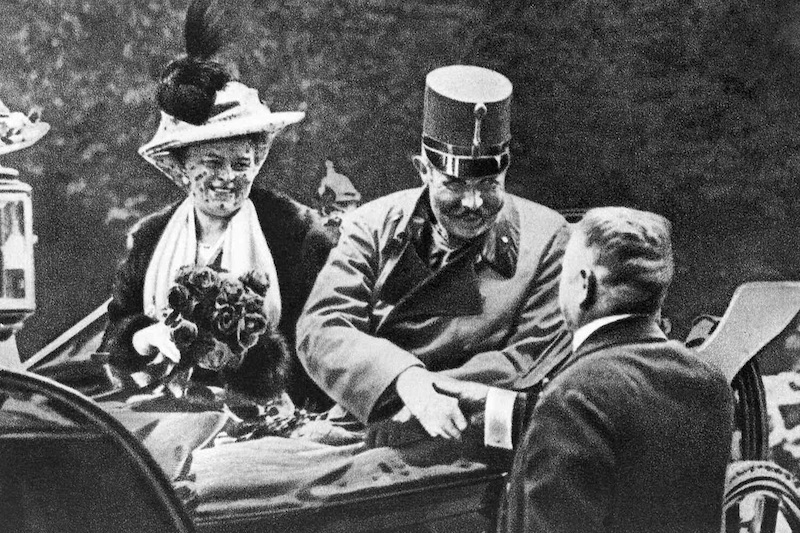People of WWI |
| The Archduke Ferdinand |
| Kaiser Wilhelm II |
| Vladimir Lenin |
| David Lloyd George |
| Georges Clemenceau |
| Eric Ludendorff |
| Sir Douglas Haig |
| Ferdinand Foch |
| Woodrow Wilson |
| John J. Pershing |

Archduke Franz Ferdinand of Austria-Hungary, the heir presumptive to the Austro-Hungarian throne, is a name etched in history as the spark that ignited the flames of World War I. His assassination on June 28, 1914, in Sarajevo, Bosnia, triggered a chain of events that led to one of the deadliest conflicts in human history. In this article, we explore the life, assassination, and the consequential impact of Archduke Franz Ferdinand on the course of world events.
Early Life and Background:
Franz Ferdinand was born on December 18, 1863, in Graz, Austria. As the eldest son of Archduke Carl Ludwig of Austria, he was groomed from a young age to assume the throne. Despite being next in line for succession, Franz Ferdinand faced resistance from the imperial court due to his morganatic marriage to Sophie Chotek, a Czech countess. Nevertheless, he remained a prominent figure in Austria-Hungary's political and military circles.
Assassination in Sarajevo
On June 28, 1914, Franz Ferdinand and his wife, Sophie, visited Sarajevo, the capital of Bosnia, a region recently annexed by Austria-Hungary. It was during their visit that a young Bosnian Serb nationalist named Gavrilo Princip, affiliated with the Black Hand secret society, shot and killed the Archduke and his wife. The assassination was a culmination of tensions between ethnic groups and the desire for independence from Austro-Hungarian rule.
Political Fallout and Escalation
The assassination of Franz Ferdinand set off a chain of political and diplomatic reactions that quickly escalated into a global conflict. Austria-Hungary blamed Serbia for the attack and issued an ultimatum, which, when not fully accepted, resulted in Austria-Hungary declaring war on Serbia. This triggered a series of alliances and counter-alliances among European powers, leading to the outbreak of World War I in July 1914.
Impact on World Events
The assassination of Archduke Franz Ferdinand had far-reaching consequences. It exposed the underlying tensions and rivalries among European powers and exposed the fragility of the existing international order. The subsequent war reshaped the political landscape, led to the collapse of empires, and redrew national boundaries. The conflict also brought about significant social, economic, and cultural changes, transforming the world in profound ways.
Legacy and Remembrance:
Archduke Franz Ferdinand is remembered as a key figure in the lead-up to World War I. His assassination, though unintended, was the catalyst that set in motion a chain of events that altered the course of history. In Sarajevo, a memorial to Franz Ferdinand and Sophie stands as a testament to their tragic end, and their memory continues to evoke contemplation on the consequences of political violence.